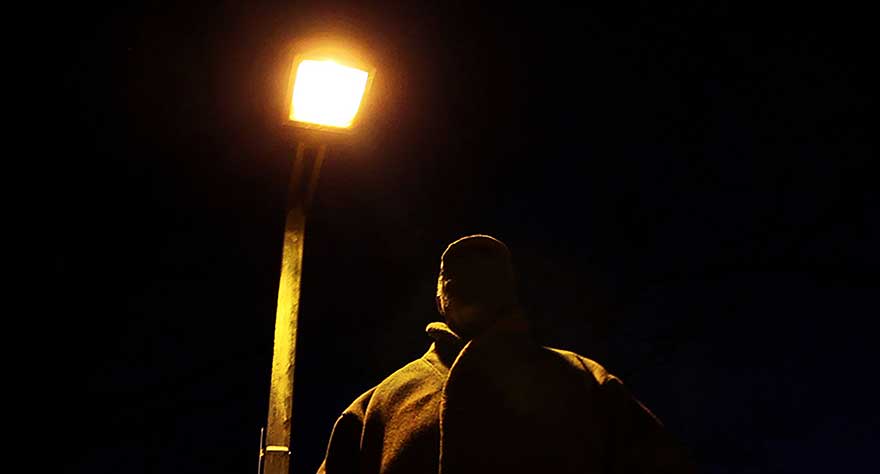
An unprecedented look into an FBI counter terrorism operation exposes a terrifying systematic injustice in this riveting documentary.

An unprecedented look into an FBI counter terrorism operation exposes a terrifying systematic injustice in this riveting documentary.
It only takes a few minutes before (T)ERROR grabs viewers, pulling them right into its riveting story as it unfolds in real-time. What gives (T)ERROR its sense of immediacy and high level of tension is that directors Lyric R. Cabral and David Felix Sutcliffe have done something no other filmmakers have done before: they somehow managed to get involved in an FBI counter terrorism operation, following an informant as he goes on a mission for the US government.
The informant is Saeed “Shariff” Torres, a 63-year-old man working as a cook in a school cafeteria. Despite his long working relationship with the FBI, one that gave him 6-figure paychecks, money is hard to come by, and when the government offers him another job he accepts, hoping it will be his last. With Cabral and Sutcliffe in tow, Shariff parts from his young son, heading off to Pittsburgh. A title card informs that, although Cabral and Sutcliffe intend to film Shariff’s investigation, his FBI superiors have no idea of their involvement.
The FBI orders Shariff to investigate Khalifah Al-Akili, a white man who converted to Islam. Shariff’s mission: Find out if Khalifah intends to leave the country to join a terrorist training camp. At this point, with Shariff’s objective laid out, (T)ERROR doesn’t have many places to go. Shariff winds up spending most of his time at his safe house, smoking marijuana to take the edge off while waiting for the right opportunity to get acquainted with Khalifah.
With the present investigation stagnant, Cabral and Sutcliffe venture into Shariff’s past. They learn about his work with the Black Panthers, how he came to work for the FBI, and one of the biggest cases he worked on as an informant. Cabral and Sutcliffe try their best to paint a portrait of Shariff, but their attempts wind up dragging the film down, largely because of their subject’s resistance. Shariff proves to be a tricky subject, as he’s constantly reluctant to speak on camera or answer any questions. He’s simply too unsympathetic and standoffish to invest in, making Cabral and Sutcliffe’s attempts to paint him as a tragic figure periodically effective.
But just when (T)ERROR looks like it’s about to fall into a dull portrait of Shariff, Cabral and Sutcliffe introduce a new element that suddenly kicks things into high gear again (Warning: spoilers from here on out). Without telling Shariff, the two directors set up an interview with Khalifah, who has no idea that the filmmakers interviewing him are simultaneously following the man investigating him. Once Khalifah gets involved with the proceedings, (T)ERROR dives head-first into murky waters, but with a direct purpose. By getting entangled in the case, Cabral and Sutcliffe expose a problem that’s been allowed to go on for too long because of its secrecy.
As Cabral and Sutcliffe begin crosscutting between Shariff and Khalifah, a horrifying truth begins to emerge; Khalifah doesn’t turn out to be a threat, but the FBI continues putting pressure on Shariff to provide “results,” whatever they may be. And when the film uses this story to comment on how this sort of injustice is rampant around the country, it paints a chilling picture. By the end, (T)ERROR turns into a portrait of two men trapped and exploited on both ends of the same system, with Cabral and Sutcliffe expertly extrapolating their subject matter to a broader, more systematic level. If last year’s Citizenfour showed that the government can get whatever they want, (T)ERROR presents a message that might be even more unnerving: the government will always get what it wants, even if it has to make it up.
Originally published as part of our 2015 Hot Docs coverage.